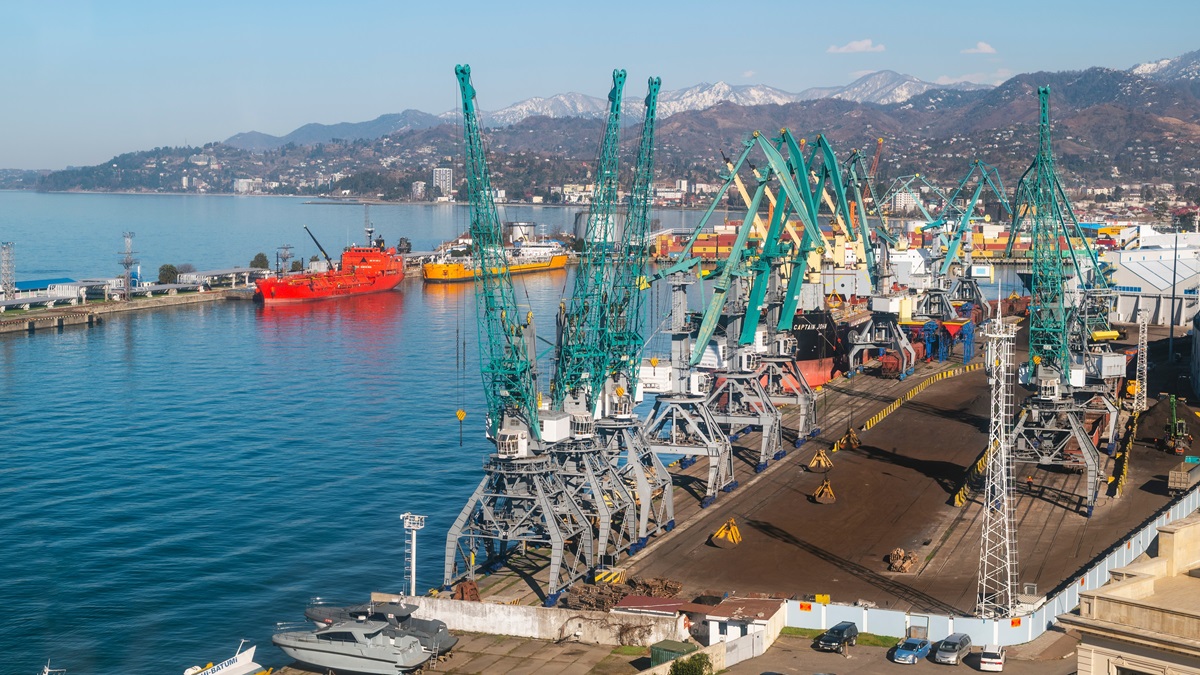The Eastern European nation makes strides towards simplifying transit customs procedure and joining the European Union Common Transit Convention, with technical support from UNCTAD.

© Shutterstock/Yarrrrrbright | The Batumi Seaport of Georgia.
Strategically situated at the eastern end of the Black Sea, Georgia is long seen as a top gateway for transportation between Western Europe, the Caucasus region, and Central Asia.
The country, home to some 3.7 million people, grew its merchandise exports by 32% between 2015 and 2022.
Neighbouring economies – Armenia, Azerbaijan, Russia, and Türkiye – plus China, were Georgia’s top five trading partners.
As a national economic priority, Georgia also seeks to boost free trade relations with the European Union (EU). In addition, the country is aiming to join the bloc which requires meeting strict deadlines to ensure compliance with all EU transit complexities.
To reach that goal, the nation is putting in place a new computerized transit system (NCTS), backed by UNCTAD’s Automated System for Customs Data (ASYCUDA) technologies, and funding from the EU.
The system, already used by traders within Georgia, has been rolled out to cover goods moving across borders. The NCTS is expected to make it cheaper and faster to transport goods between Georgia and the EU market.
Accelerating regional integration
More importantly, the UNCTAD developed system paves the way for Georgia to join the European Union Common Transit Convention, an international treaty to ease trade among the EU and a few other economies.
The convention streamlines merchandise transits by enabling one shared customs declaration and guarantee among its current 36 contracting states.
Achieving EU compliance with the convention is a significant and necessary milestone conditioning accession for all EU candidate countries.
This requires passing through a complex four-stage assessment. Georgia’s NCTS has already passed the first two stages of testing by the EU which has validated the system’s national compliance.
Regional and international compliance testing is currently under way and represents the final stage prior to full approval of the system by the bloc.
"The collaborative work to align Georgia’s transit system with EU requirements is already proving to be successful,” says Shamika N. Sirimanne, director of technology and logistics at UNCTAD.
“We at UNCTAD are looking forward to building on our partnership in the region which has a massive potential for trade and regional integration.”
Longstanding cooperation, tangible results
The cooperation between UNCTAD and Georgia dates back to 1998, with the launch of the country’s first IT customs management system (ASYCUDA ++).
That system later evolved to a more advanced version known as “ASYCUDAWorld” in 2007.
These efforts bolster the capacity of Georgia to digitize customs operations, collection revenues and gather trade statistics, even laying the foundation for nation’s broader e-Government programme.
“The [NCTS] project significantly increases the predictability and transparency of transit process,” says Nino Jincharadze, Head of service quality monitoring at the Georgian Revenue Service.
“This will contribute to better supply chain planning and allows businesses to improve and manage their operations more efficiently.”
Further partnerships
Georgia’s NCTS project is inspiring more countries to step up cooperation with UNCTAD to improve trading connectivity.
For example, Moldova also requested technical assistance with the ASYCUDA programme to implement a similar customs systems upgrade.
Triangular discussions are underway among both countries and UNCTAD to share knowledge and best practices of implementing and maintaining NCTS platforms.


